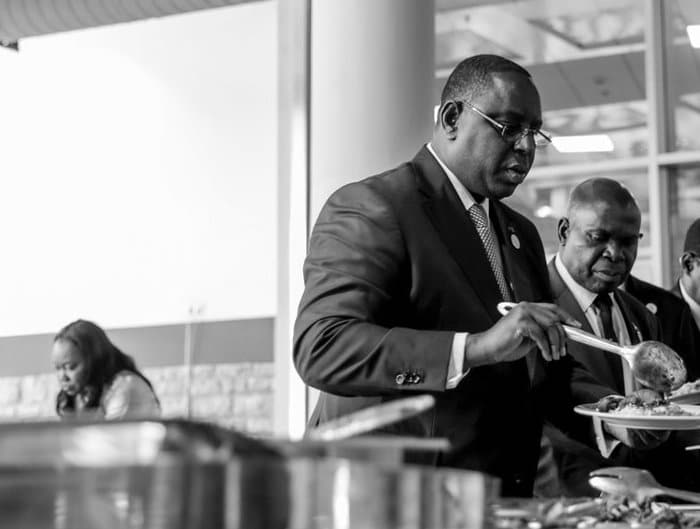High Cost of Living in Senegal: Macky Sall Filling his Cart of Measures

The Head of State Macky Sall announced, this last weekend, a series of 11 decisions aimed at immediately reducing the prices of certain food products. But he and other actors in the sectors concerned are aware that the country will only be able to cope with the risks of shortages of certain products and rising prices if it is able to produce what it consumes.
Several actors who were at the ceremony of restitution of the consultations on the cost of living at the Palace, while welcoming the decisions taken by the Head of State for the reduction of the prices of certain basic necessities, recalled a duty of vigilance. The President announced what he detailed as 11 decisions, « which will be translated into 55 measures, leading to immediate reductions in the prices of consumer products and services. And this, from Monday. » These measures will have 112 accompanying measures, assured Macky Sall, indicating that they will strengthen the policy to accompany food sovereignty.
The magic word pronounced by the Head of State was echoed by different actors in the Banquet Hall. Many realised that it was not only a question of the State taking measures and imposing decisions for the reduction of the prices of staple foods. It was also a question of ensuring that the embryo of local production does not suffer from the entry of certain products or that the policy of waiving taxes, intended to keep tariffs down, does not have a negative impact on public finances.
Referring to certain horticultural products such as onion and potatoes, Mr. Serigne Mansour Guèye, of Copasen, the Cooperative for the Promotion of Horticultural Products in Senegal, stated that Senegal had not experienced a deficit in onion and potato production for several years. And stated that the real problem of the country is the lack of storage infrastructure. This problem leads to the fact that « post-harvest losses in Senegal are estimated at 18 billion for onion and 15 billion for potatoes ». Huge quantities that go to the bin, and the State is obliged to fill by opening the borders to products coming mainly from European countries.
Mr. Guèye assured that if producers had storage capacities, they would not only achieve the country’s self-sufficiency in these products, but could even afford the luxury of exporting them to the sub-region. It is unfortunate that this problem is dragging on, because somewhere this lack of infrastructure is hampering progress in the horticultural sector. SerigneMansour Guèye revealed that the state had to spend about 6 billion francs a year on subsidies for quality seeds for potatoes and onions. And these seeds cannot be stored for long, at the risk of decomposition. But with the help of Senegalese research, the Directorate of Horticulture, under the leadership of Dr. Macoumba Diouf, found a way to produce quality seeds locally, in order to supplement imports. But these advances have not yet been felt due to the fact that the Senegalese onion is often rare and expensive in the local market.
A somewhat different problem arises in the rice sector, where the cacophony between local producers and importers could not be calmed despite the presence of the Head of State. On that sector, it is, first of all, a question of improving the distribution channels of local rice and the strict control of imports, which, risks becoming even more difficult.
By Mohamed GUEYE / mgueye@lequotidien.sn

